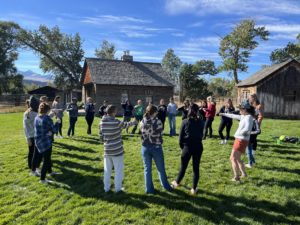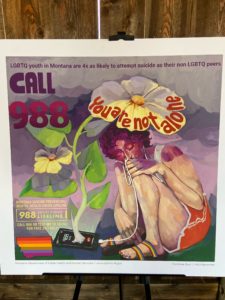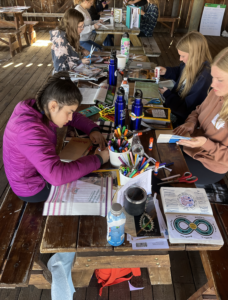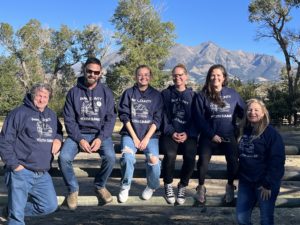Student Voice of Mental Health Award Winner Areli Rosales on the Power of Vulnerability
Areli Rosales has always felt it was her duty to help heal the people in her life. Growing up the child of an immigrant mother ...
Montana teens and young adults are accepting of mental health and suicide prevention, but access to support remains a top concern.

Park County teens gathered at Montana’s Mountain Sky Guest Ranch recently to help mental health experts, advocates, educators, and the community learn more about youth mental health and suicide prevention. Montana’s suicide rate ranks in the top five over the past 30 years, so JED is working to support rural youth there with a first-of-its-kind event.
Months after more than half a dozen student focus groups were held at Park County schools, key findings were presented at a youth summit by Kurt Michael, Senior Clinical Director at The Jed Foundation (JED), and Emily Kempe, a JED High School Advisor and a youth engagement coordinator for Park County. The two-day summit, held in late September, was organized by JED, LiveWell49, the Arthur M. Blank Family Foundation, and the MT 988 Project.
 Students in grades 7 to 12 from Gardiner, Park High, Shields Valley, and Sleeping Giant Middle School, as well as home-schoolers, took part in interactive art experiences with Montana State University professors and the MT 988 Project, including the creation of self-care and mindfulness journals, suicide-prevention awareness stickers, and posters to promote Montana’s recently launched 988 Suicide and Crisis Lifeline.
Students in grades 7 to 12 from Gardiner, Park High, Shields Valley, and Sleeping Giant Middle School, as well as home-schoolers, took part in interactive art experiences with Montana State University professors and the MT 988 Project, including the creation of self-care and mindfulness journals, suicide-prevention awareness stickers, and posters to promote Montana’s recently launched 988 Suicide and Crisis Lifeline.
The teens in attendance also continued the discussion about what can be done to improve mental health services and reduce suicide by validating results of JED’s student focus groups, which occurred throughout Park County schools and a local mental health clinic in March. Students offered their perceptions of mental health in their schools and communities, which will help educators, parents, caring adults, and community members to better support them.
Among the main takeaways from the focus groups were:
 Additional feedback from the students included a desire for enhanced peer support and telehealth options due to Montana’s geographic remoteness and transit limitations.
Additional feedback from the students included a desire for enhanced peer support and telehealth options due to Montana’s geographic remoteness and transit limitations.
In the U.S., suicides account for the majority of gun deaths. In Montana, 62% of suicides are from firearms. Suicide prevention is especially important in states like Montana, where 66.3% of adults own a gun — the highest percentage of any state.
“Montana’s youth face unique challenges due to geographical and cultural factors. They have limited access to mental health resources, but increased access to lethal means like firearms,” Michael says. “We must prioritize and advocate for mental health support across these rural communities. Listening to these young people share their lived experiences at the youth summit so openly and vulnerably was exceptional to witness, and I have no doubt the future of young Montanans is in great hands.”
Kempe, who works with Montana’s first JED High School program, in the Gardner School District, says the survey results and student feedback are the first steps toward enhancing protection for youth mental health in Park County and across Montana. The focus group and summit reached about 8% of Park County youth.

“When we talk about suicide, it is important for people to understand it is a deeply entrenched issue in rural areas,” Kempe says. “While some of the statistics in Montana are sobering, there is an invested, supportive, and caring community here doing the work to prevent further suicides.”
The JED High School program provides high schools and districts with expert support, evidence-based best practices, and data-driven guidance to protect student mental health and prevent suicide.
If you or someone you know needs to talk to someone right now, text, call, or chat 988 for a free confidential conversation with a trained counselor 24/7.
You can also contact the Crisis Text Line by texting HOME to 741-741.
If this is a medical emergency or if there is immediate danger of harm, call 911 and explain that you need support for a mental health crisis.